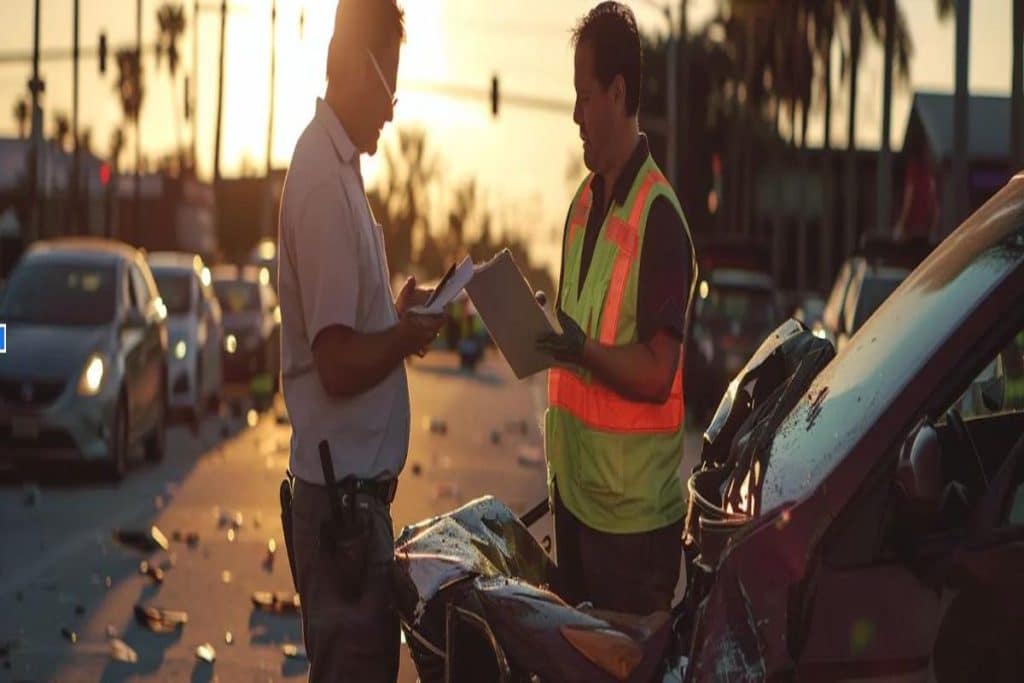Dealing with the aftermath of a car accident can be overwhelming, especially when it happens in a state with unique laws and regulations like Florida. Understanding your legal obligations, how to protect your rights, and navigating the insurance landscape are critical to coping with the situation effectively. Knowing the right steps to take not only ensures your safety but also safeguards your ability to get fair compensation. Keep reading as we delve into the essential actions you need to take after experiencing a car crash on the Sunshine State’s roadways.
Seeking Legal Assistance: When to Contact a Car Accident Attorney in Florida
While minor accidents can often be managed through direct insurance claims, complex situations demand expert legal advice. If you sustain serious injuries, face significant property damage, or dispute who is at fault, consulting with a car accident attorney is in your best interest. A skilled lawyer can navigate Florida’s complex legal environment and ensure fair compensation.
Attorneys are particularly invaluable when dealing with uncooperative insurance companies or when injuries lead to long-term consequences. They can compile the evidence, build a strong case for damages, and represent you in court if necessary. For victims unsure of where to begin, NeedAnAttorney.net offers resources to connect with experienced legal professionals who specialize in personal injury claims in Florida.
Legal representation is crucial not just for securing the compensation you deserve but also for navigating Florida’s complex legal system. With an advocate by your side, you can focus on your recovery with the peace of mind that your case is in capable hands.
Understanding Florida’s Unique Car Accident Laws
Florida’s car accident laws are distinct from many other states due to its no-fault insurance system. This system means that after an accident, each driver’s insurance covers their own medical bills and lost wages up to a certain limit, regardless of who was at fault. Floridians must carry personal injury protection (PIP) as part of their auto insurance to comply with state laws.
Another unique aspect of Florida law is the pure comparative negligence rule. This means that if you’re partially at fault for the accident, your compensation will be reduced by your percentage of fault. For instance, if you’re found to be 20% at fault and your damages amount to $10,000, you would only receive $8,000 in compensation.
Additionally, Florida imposes a statute of limitations on how long you have to file a lawsuit after a car accident. In most cases, you have four years from the date of the accident to file a personal injury lawsuit. However, if you’ve lost a loved one due to a crash, the timeframe to file a wrongful death lawsuit is typically two years.
Immediate Steps to Take Following a Car Accident in Florida
The moments after a car accident are critical. Your main priority should be safety; make sure to move out of traffic and check on the well-being of everyone involved, if possible. Call 911 immediately to report the accident and get medical and police assistance at the scene. Remember, injuries might not always be immediately apparent.
Exchange information with the other driver involved, including names, contact details, insurance information, and driver’s license numbers. While you wait for the police, refrain from admitting fault or liability, as these conversations could potentially be used against you in legal or insurance proceedings.
In the case of severe accidents, the Florida Highway Safety and Motor Vehicles (FLHSMV) requires crashes that result in bodily injury or significant property damage to be reported immediately. A police report can be invaluable when dealing with insurance companies or if a lawsuit becomes necessary.
Navigating Insurance Claims and Florida’s No-Fault System

In Florida, after a car accident, you’ll typically file a claim with your own insurance company under your PIP coverage. This should cover the initial medical expenses and a portion of lost wages, irrespective of fault. It’s vital to report the accident to your insurer as soon as possible, as delays can complicate the claims process.
However, PIP typically has limits, and significant damages can easily exceed them. In such cases, you may be entitled to file a claim against the at-fault driver’s insurance for additional damages. This step often requires proving the severity of the injuries and that they meet the “serious injury” threshold as defined by Florida law.
Overall, the steps you take following a car accident in Florida can significantly affect the outcome of your insurance claims and potential legal proceedings. By understanding the laws, documenting the incident thoroughly, and knowing when to seek professional assistance, you can protect your rights and work towards a fair resolution. For severe incidents, seeking timely legal advice can make all the difference in successfully navigating the aftermath of a car collision.
